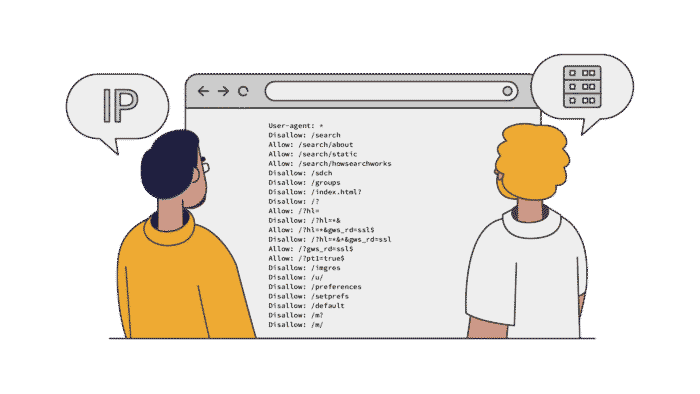Ethics relates to the distinction between good and bad or right and wrong. There’s nothing illegal in using free proxies for web scraping. Yet, a few ethical concerns can arise, especially if, by using them, you do something that is considered wrong.
This article looks at the ethics of using free proxies, the risks associated with these tools, and how they are used. Choosing a tool from an ethical and trusted providers’ free proxy list is a sure way to avoid such risks.
Ethical considerations of using free proxies for web Scraping
For providers
Untrusted providers take a no-holds-barred approach to doing business. They disregard set laws and best practices. Such providers may disregard data privacy laws like the GDPR (General Data Protection Regulation) and CCPA (California Consumer Protection Act).
They may monitor your traffic and harvest data that may not be encrypted. Additionally, they may also carry out man-in-the-middle attacks.
For users
Web scraping, the process of collecting data from the internet, is neither illegal nor inherently wrong. However, websites typically include a robots.txt file that instructs scrapers and crawlers to avoid certain web pages or even the entire website.
In such cases, using a free proxy to anonymize a web scraper and bypass these directives crosses an ethical line. Furthermore, using free proxies to collect personal data with the intention of selling it to the highest bidder is clearly unethical.
If you’re exploring ethical and efficient ways to gather publicly available data, consider using some of the best web scraping tools that respect website policies.
Risks associated with free proxies
Poor performance
Free proxies often share the connection among multiple users. And while they may be using powerful data center computers, routing a lot of traffic through these computers may bog them down. Therefore, the high traffic volume causes slow speeds and lackluster performance.
Lack of transparency
Providers of free proxies may not always disclose some information. For instance, they may not tell you the type of proxy you are using or whether they share the connection among multiple users.
The number of users sharing the connection may also not be clear from the outset. The providers may not even disclose the fact that the assigned IP address has been blocked.
Trust deficit
The lack of transparency is closely tied to a second risk: a lack of trust. An untrustworthy proxy provider may not always abide by the applicable rules and regulations. They may, therefore, snoop on your data with the aim of potentially harvesting and selling it.
And in an age where governments and regional bodies stringently enforce data privacy laws, this risk can carry financial and reputational penalties to brands.
Security vulnerabilities
The trust deficit, like the lack of transparency, has a cascading effect: it presents security risks. Untrustworthy providers of free proxies can predispose users to malware attacks. They might even carry out the attacks themselves.
Untrusted providers can execute such attacks by hiding the malware in files or programs that users must download and install before setting up the connection. For instance, they can provide their own root certificates and use them to sign connections, creating an illusion of security that they exploit to deliberately harvest data.
Unreliability due to easy blacklisting
Free proxies’ IP addresses are easily blacklisted, especially if purchased from untrusted providers. (In some cases, such IP addresses are already blocked, which is why they are made available for free.) A few factors influence the blacklisting.
First, most of the proxies in the free proxy list are hosted in data centers, meaning they are essentially data center proxies. Datacenter proxies are normally created in bulk and can be easily detected, unlike residential proxies.
Secondly, they are free and available for everyone to use. More people, therefore, end up using the proxy, generating high traffic from the associated IP address. This ultimately causes hosting and content delivery network (CDN) servers to block the addresses, rendering the free proxy unusable.
Possible involvement in illegal activities
Free proxies appeal to users who may wish to conduct illegal activities. Not only do they assign a different IP address, thereby conveniently anonymizing a user’s online activity, but they also add another layer of anonymity by sharing the connection among users.
The latter creates a situation where it becomes close to impossible to identify the party behind the illegal activity. And while this may benefit bad actors, it puts other innocent users at risk. Innocent parties are deemed guilty by association and are impacted by sanctions such as blacklisting.
Limited uses of free proxies
The risks associated with free proxies limit the breadth of their usage. Still, to enjoy the benefits of free proxies, it’s important to go with those offered by a trusted provider. You can use the tools in this free proxy list in the following ways:
- Testing web scrapers across different regions
- Small-scale web scraping tasks
Conclusion
Trusted service providers have a free proxy list bereft of risks such as poor performance, lack of transparency, security vulnerabilities, and more. These proxies are founded on ethics and can be used for small-scale web scraping tasks as well as testing web scrapers.


